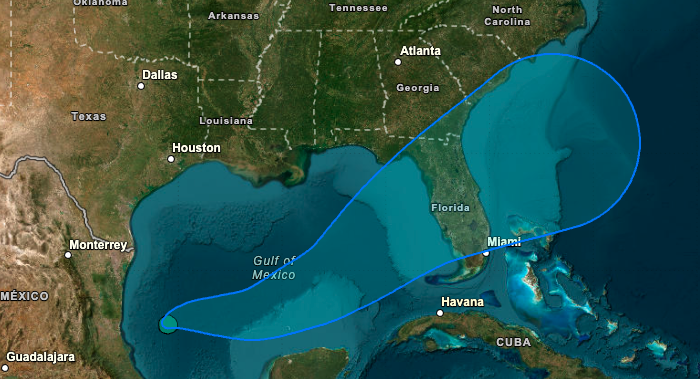The El Faro's owner sent a company-wide safety alert out about a hurricane last summer, but did not send one before the storm that contributed to the ship's sinking, company officials testified Wednesday.
Phil Greene, CEO and President of Tote Services Inc., told a U.S. Coast Guard investigative panel that safety personnel sent out an alert for Hurricane Danny last summer only because it was the first hurricane of the season. Investigators pointed out that Danny was the fourth named storm of the season, not the first, and questioned why no similar alert was sent out before Hurricane Joaquin.
The 790-foot-long El Faro sank Oct. 1 after losing propulsion while sailing from Jacksonville to San Juan, Puerto Rico. All 33 crew aboard died.
Greene said the alert was sent out before the earlier storm "in recognition of first hurricane of the season to remind all our vessels in all oceans to take the action of reviewing their plans.''
The Coast Guard panel is investigating if misconduct or other problems by the company or others led to the ship's sinking in 15,000 feet of water near the Bahamas.
It is unclear if anyone at Tote other than Michael Davidson, the El Faro's captain, was tracking Joaquin.
Lee Peterson, director of safety and marine operations for Tote, said he wasn't tracking the storm from his office onshore, and was unaware if anyone else was watching the storm that became a Category 4 hurricane. He said sometimes he used a website to track ships and weather, but didn't recall doing so in the days before El Faro sank.
Local
It is unclear why Davidson chose to take a route closer to the storm's path rather than a longer, safer route that he had taken during previous storms such as Tropical Storm Erika. Investigators have not been able to recover the ship's "black box'' which would have recordings from the bridge that might shed light on that decision. The National Transportation Safety Board said it is planning to search the wreckage again in an attempt to find it.
"Do you know why the vessel would go southbound on the late August voyage ... through the Old Bahama Channel than choose to go (a different route) for Hurricane Joaquin,'' asked Coast Guard Cmdr. Mike Odom, a technical adviser to the board.
"I wish I could answer that,'' Peterson said.
According to Greene, it was the captain's responsibility to make sure the ship and its crew were safe, not onshore personnel. That includes choosing which route to take in bad weather.
"The authority for voyage planning resides with the master,'' Greene said. "It's at the master's discretion to determine the best track.''
Robert Green, father of El Faro's chief cook LaShawn Rivera, watched the testimony with other crewmembers' families. He said he thinks the Coast Guard and NTSB investigators are asking the right questions.
"I'm confident they'll give us answers,'' he said.
The hearing resumes Thursday and lasts through next week. The Coast Guard will hold another hearing later this year, and release a report. It can bring civil charges, and can forward any evidence of criminal wrongdoing to the U.S. Department of Justice for review.



